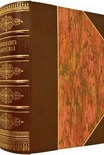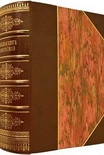Low Magick Lon DuQuette (top 10 inspirational books .txt) 📖

- Author: Lon DuQuette
Book online «Low Magick Lon DuQuette (top 10 inspirational books .txt) 📖». Author Lon DuQuette
In the first sentence of this chapter, I referred to Eliphas Lévi as “the great nineteenth-century esotericist.” I did not call him a magician. Even though Monsieur Lévi is universally lauded as the father of modern high magick, he was not a practicing magician. He was a brilliant scholar, a holy man, a teacher, and a magical philosopher, but, with the exception of one curious necromantic experiment that he confessed was not at all successful, he did not practice magick.
I do practice magick. In fact, I now view my entire life, waking and sleeping, to be a continuous magical operation. And so, gentle reader, for the duration of this book, the stories I shall tell of magical operations that I have actually done rather than just read about, performed rather than just discussed, experienced rather than just fantasized, and executed rather than merely mused upon—I will affectionately and unapologetically call acts of “low magick.”
[contents]
4 Aleister Crowley, Collected Works, Orpheus. Vol. III (Homewood, IL: Yogi Publications, 1978), 217.
5 Eliphas Lévi (1810–1875), pseudonym of Alphonse Louis Constant. Dogme et ritual de la haute magie was first published in 1854. Published most recently as Transcendental Magic, translated by A. E. Waite (York Beach, ME: Weiser Books, 2001).
6 Founded in 1888, the Order of the Golden Dawn was arguably the most influential magical society of the late nineteenth and early twentieth centuries. Aleister Crowley joined in 1898 and would soon become the catalyst in the events that would bring about the Order’s destruction. The basic degree structure of the Golden Dawn would serve as the model for Crowley’s own magical order, the AA
7 Ibid.
8 See my book Angels, Demons & Gods of the New Millennium (York Beach, ME: Red Wheel/Weiser, 1997), 156.
9 Unfortunately, for the Christian born without “grace,” right belief or good behavior in life will not be enough to save him or her from the dreadful flames of eternal hell. Sorry.
10 After all, I can’t be an atheist. I’m a Freemason!
11 The Book of the Goetia of Solomon the King. Translated into the English Tongue by a Dead Hand and Adorned with Divers Other Matter Germane Delightful to the Wise, the Whole Edited, Verified, Introduced and Commented by Aleister Crowley. Most recent edition with engraved illustrations of the spirits by M. L. Breton and foreword by Hymenaeus Beta (York Beach, ME: Samuel Weiser, 1996). Known as the Lesser Key of Solomon, it is the First Book of the Lemegeton (c. 1687). Translated by S. L. MacGregor Mathers (the “Dead Hand” referred to in the full title above). From the British Library Sloane Manuscripts nos. 2731 and 3648.
12 I describe this incident in greater detail in several other places in my previously published works, especially My Life with the Spirits: The Adventures of a Modern Magician (York Beach, ME: Red Wheel/Weiser, 1999).
two
The Formula of Solomon
Give therefore to thy servant an understanding heart to
judge thy people and to discern between good and bad?
First Kings, chapter 3, verse 913
It may seem odd to you that I, as a man who more or less rejects the historicity of the Bible and most, if not all, of the Chrislemew view of spiritual reality, should spend my time praying to God, conjuring spirits, summoning demons, and communing with angels. Make no mistake, I do indeed believe in the magical reality of gods, archangels, angels, spirits, and demons, and for the purpose of some particular magical operations, I even embrace (albeit temporarily) the concept of a heaven filled with angels of high intelligence, and a hell filled with legions of dangerous demons. In fact, because I actually work with these characters in practical ways, they present to me a far greater reality than they do for the average Chrislemew who simply tucks these concepts away in a corner of his or her brain where fanciful religious abstractions are stored.
As you will soon see, several of the stories in this book deal with my experiences with Solomonic magick or Goetia. Goetia is often vilified as the most striking example of low magick. Please understand right now that I do not intend to burden you with another rehash or a tiresome reprint of the text Goetia14 with its seventy-two spirits and the traditional procedures used to conjure them. (There is a glut of books already on the market if that is what you need.) Rather, I hope by means of simple anecdotes and illustrations to gently acquaint you with the dynamics of this kind of magick—why it sometimes works, and why it sometimes doesn’t. Moreover, it is my hope that when you have finished reading this little book, you will have a greater understanding of the sublime spiritual formula that underlies this kind of magical practice—a formula, when properly applied, that promises to the tenacious and courageous magician a greater measure of personal health, happiness, and enlightenment.
The formula of Solomonic magick is very simple and uses the character of King Solomon as the mythological archetype of the ideal magician. There are many stories and traditions about Solomon that come from sources other than the Bible. An important part of the mythology of Freemasonry revolves around a peculiar story of King Solomon and the building of his magnificent temple—a story that is not found in the Bible. The Koran, the Talmud, and Ethiopian scriptures also abound with colorful tales of the great magician king who, because of his special relationship with





Comments (0)